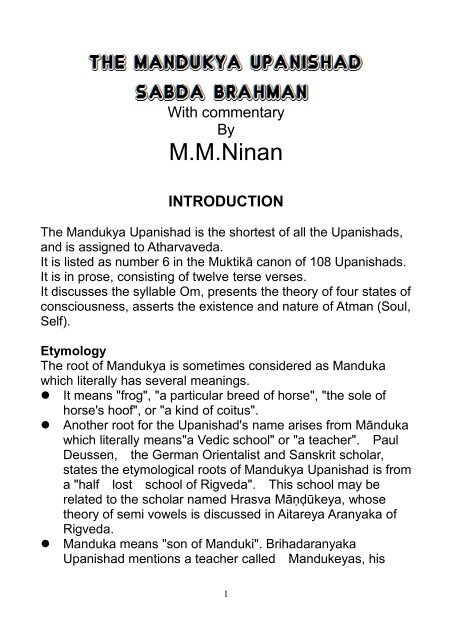Mandukya2
Create successful ePaper yourself
Turn your PDF publications into a flip-book with our unique Google optimized e-Paper software.
With commentary<br />
By<br />
M.M.Ninan<br />
INTRODUCTION<br />
The Mandukya Upanishad is the shortest of all the Upanishads,<br />
and is assigned to Atharvaveda.<br />
It is listed as number 6 in the Muktikā canon of 108 Upanishads.<br />
It is in prose, consisting of twelve terse verses.<br />
It discusses the syllable Om, presents the theory of four states of<br />
consciousness, asserts the existence and nature of Atman (Soul,<br />
Self).<br />
Etymology<br />
The root of Mandukya is sometimes considered as Manduka<br />
which literally has several meanings.<br />
It means "frog", "a particular breed of horse", "the sole of<br />
horse's hoof", or "a kind of coitus".<br />
Another root for the Upanishad's name arises from Mānduka<br />
which literally means"a Vedic school" or "a teacher". Paul<br />
Deussen, the German Orientalist and Sanskrit scholar,<br />
states the etymological roots of Mandukya Upanishad is from<br />
a "half lost school of Rigveda". This school may be<br />
related to the scholar named Hrasva Māṇḍūkeya, whose<br />
theory of semi vowels is discussed in Aitareya Aranyaka of<br />
Rigveda.<br />
Manduka means "son of Manduki". Brihadaranyaka<br />
Upanishad mentions a teacher called Mandukeyas, his<br />
1


















